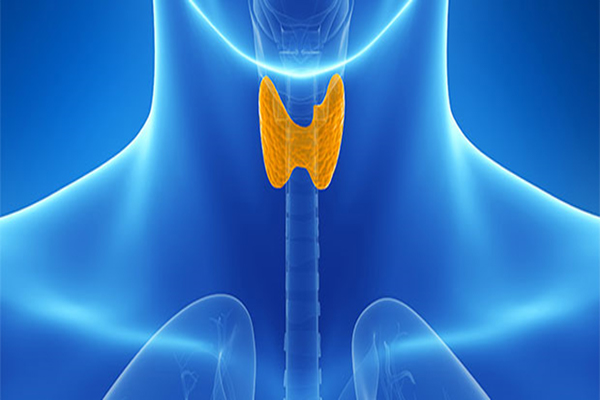

The thyroid is a small gland located at the base of our neck that helps to regulate a person’s metabolism by producing thyroid hormones. The common disorders that can arise from thyroid are
• Hyperthyroidism, if it produces too much hormone
• Hypothyroidism, if not enough hormones are produced
• And enlargement of the gland either diffuse or nodular Hyperthyroidism
Hyperthyroidism
Hyperthyroidism is when a person has too much thyroid hormone in their body.
Causes
• Graves’ disease, is an autoimmune problem that causes the whole thyroid gland to make too much thyroid hormone.
• Multinodular goiter with hyperfunctioning inter nodular area
• Thyroiditis, temporary inflammation of the thyroid gland due to an autoimmune condition or a virus. The same illness can also cause hypothyroidism
• Taking thyroid hormone replacement for hypothyroidism.
Symptoms
• Unintended weight loss irrespective of good appetite fatigue over time
• Preference to colder environments
• Excessive sweating
• Increased pulse rate and palpitations
• Tremors in the hands
• Anxiety
• Sleeplessness
• Nervousness and irritability
• Fine and brittle hair
• Muscle weakness
• Frequent bowel movements
• Low menstrual flow or fewer periods
A person with Graves’ disease may also experience inflammation of the eyeballs. This pushes the eyeball forward, and they appear to bulge out.
Diagnosis and Treatment
After proper clinical examination laboratory tests have performed that measure the amount of thyroid hormone and TSH in a person’s blood and other tests to confirm the cause of the hyperthyroidism
If the patient is diagnosed with hyperthyroidism doctors use beta-blockers as short-term treatment to reduce the symptoms of hyperthyroidism. More permanent treatment options include
• Antithyroid drugs: These stop the thyroid from making so much thyroid hormone.
• Radioactive iodine tablets: Thyroid cells absorb the iodine. This treatment destroys them, and the gland’s hormone overproduction stops.
• Surgery: which removes part or all of the thyroid.
Hypothyroidism
Causes
• Thyroiditis, inflammation of the gland, most commonly hashimotos thyroiditis
• Surgical removal of part or all of the thyroid gland
• Radioactive iodine treatment for hyperthyroidism
• Radiation treatment for head and neck cancers
• Absence of the gland from birth
• Iodine deficiency
• Pituitary gland damage
Symptoms
Hypothyroid symptoms can vary, but may include:
• Preference to colder environments
• Easy fatiguability
• Dry skin
• Forgetfulness
• Weight gain
• Menstrual problems
• Infertility
• Constipation
A person may also develop a goitre, or enlargement of the thyroid gland. This condition happens because the gland tries to compensate for the lack of thyroid hormone.
Diagnosis and Treatment
In thyroid function test, the doctor looks for a high level of thyroidstimulating hormone (TSH) in a person’s blood. Alternatively, a doctor may test for a low level of the thyroid hormone, which is known as thyroxine. There is no cure for hypothyroidism, but a person can manage it with thyroid hormone replacement.
Thyroid nodules
Thyroid nodules are lumps on a person’s thyroid. They can appear alone or in groups and are very common. However, the vast majority of thyroid nodules are harmless. It is not clear why people develop thyroid nodules. Thyroid nodules do not typically cause symptoms, unless they are large, or overactive. If a doctor feels thyroid nodules on a person’s neck, during an examination they may check for hyperthyroidism or hypothyroidism.There is a small risk of thyroid nodules being cancerous. To check for this, a doctor can do an ultrasound or a fine-needle biopsy. If there are any signs of cancer or possible risk of cancer in the future, a doctor will recommend removing the nodules. Depending on the type of cells found in a biopsy, and the risk of the nodule being cancer, a doctor may remove part or all of the gland.
Summary
Although the symptoms can be nonspecific, diagnosing a thyroid disorder is usually straightforward. If a person is concerned that they may have a thyroid disorder, they should seek medical help for further evaluation and treatment
Dr. Mebin Mathew MBBS, MS, DNB, FMAS
General & Laparoscopic Surgeon
